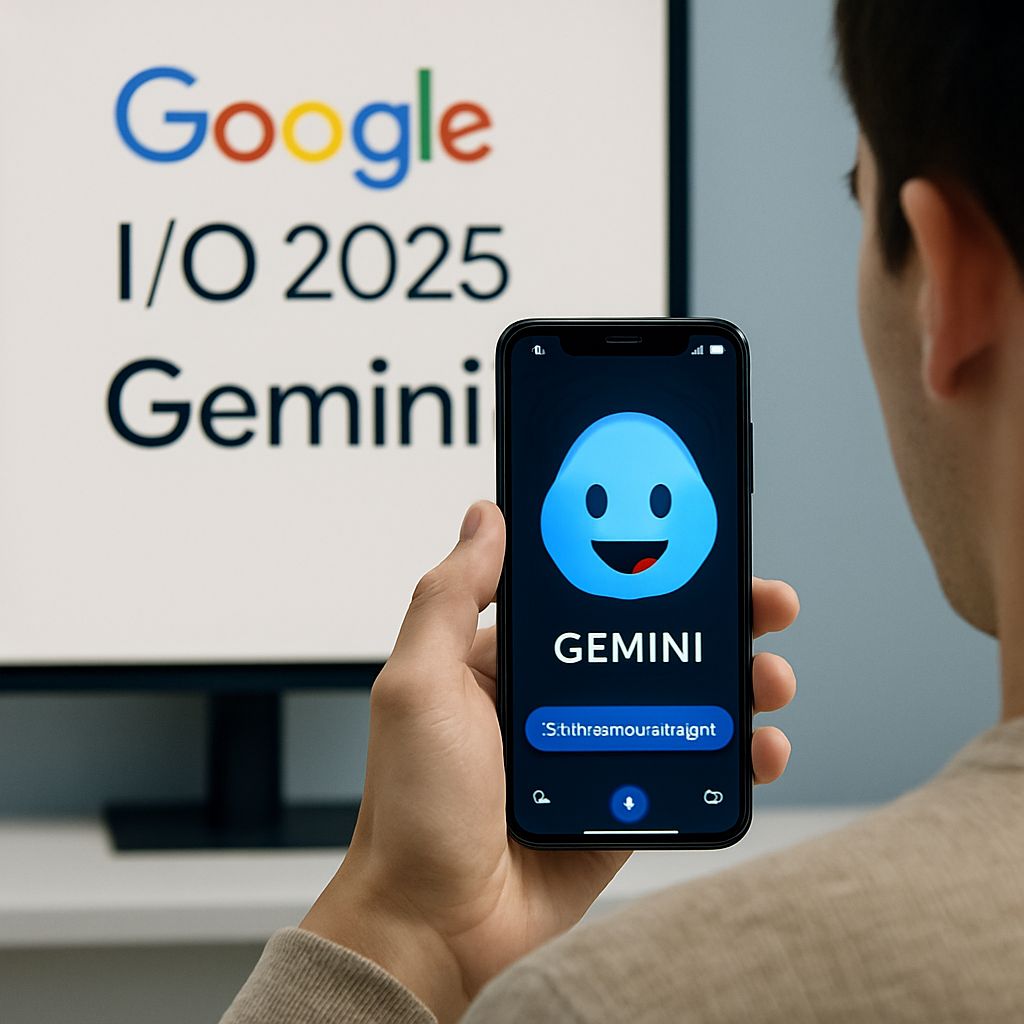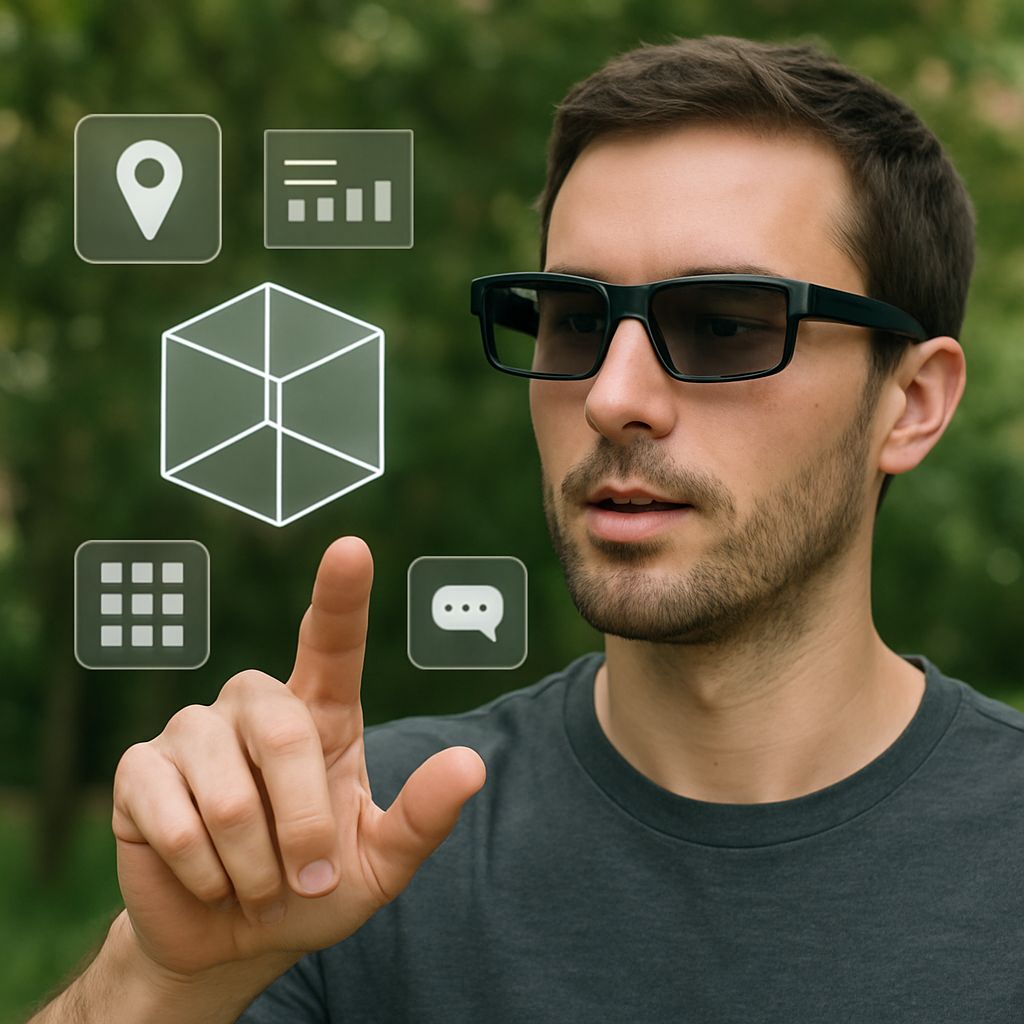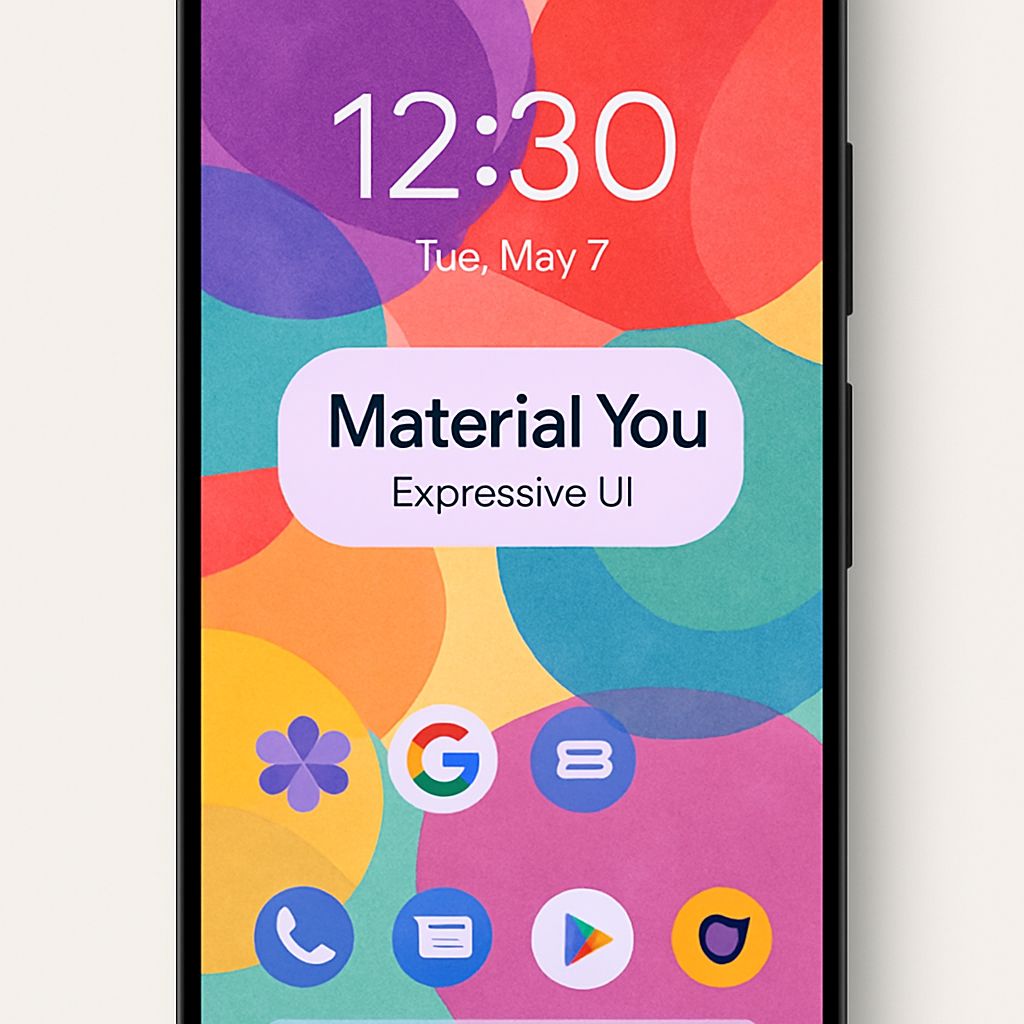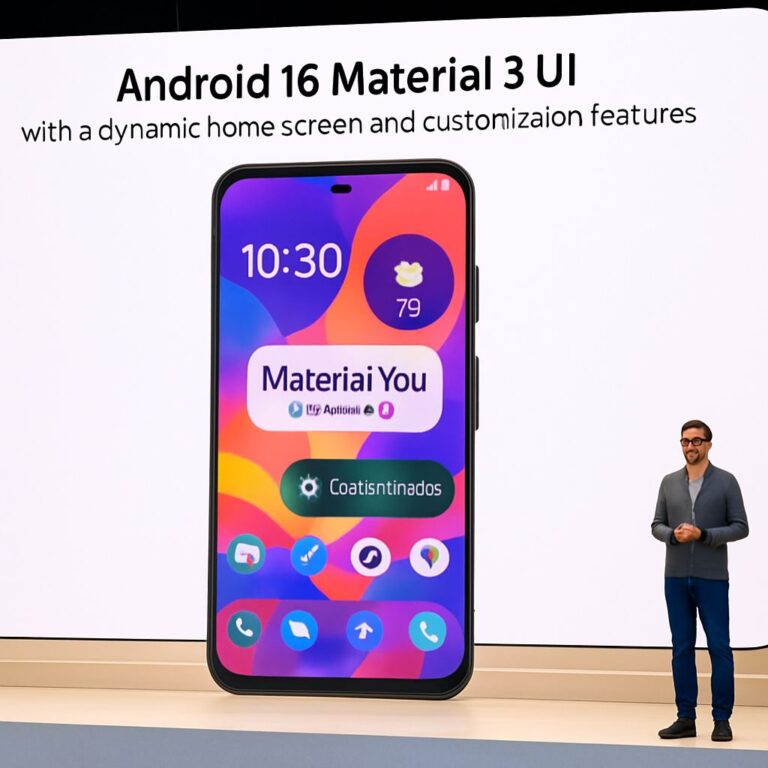Google I/O 2025: What to Expect – From Gemini AI to Android 16 and Extended Reality
Introduction: A Glimpse Into the Future of Tech
Are you ready to see the future unfold right before your eyes? Google I/O 2025 is just around the corner, and it promises to be one of the most exciting tech events in recent history. But here’s the real question: What can we expect? Is this the event that will change the way we interact with AI, smartphones, and even reality itself? I know you’re curious—and trust me, I’ve done the deep dive across the internet to bring you all the insights.
Google I/O 2025, Android Studio at 10, Android 16 Betas, this video is credited to the Android Developers YouTube channel
After analyzing everything across the internet and gathering real-world insights, the Bhussan.com team shares this friendly, helpful article that will guide you through the anticipated innovations at Google I/O 2025.
Gemini AI: A Smarter, More Intuitive Future
The Evolution of Gemini: From Smart to Genius
We’ve already seen how artificial intelligence is transforming the tech world, but at Google I/O 2025, we’re about to witness the next big leap in AI with Gemini. Imagine an AI that doesn’t just respond to commands but understands you on a whole new level. This iteration of Gemini promises to be smarter, faster, and more integrated into every aspect of our daily lives.
Gemini 2.5 Pro: The Brain Behind Google’s New Era
The upcoming Gemini 2.5 Pro is expected to take Google’s AI capabilities to the next level. It’s not just about voice assistants answering questions or auto-suggestions appearing in your inbox. Gemini 2.5 Pro will:
-
Read Between the Lines: Natural language processing will improve, making Gemini capable of understanding deeper context and tone. Imagine having a conversation with an AI that can detect when you’re asking a question or making a sarcastic remark.
-
Real-Time Assistance with Camera Input: Gemini Live is expected to bring real-time visual analysis. Point your phone at something, and Gemini will tell you exactly what it is or how it can help. Need directions or product recommendations? Gemini will be your new personal guide.

Project Astra: Augmenting Reality with AI
Not stopping at just smartphones, Project Astra will combine Gemini with augmented reality (AR) to create new ways to interact with the world around you. Imagine wearing smart glasses that act as a window to the future, overlaying important information over real-world objects.
Project Astra will bring AI-powered real-time features into our daily lives, transforming the way we shop, work, and learn. It’s like taking your personal assistant to the next level—but in your glasses!

Android 16: The Future of Mobile Operating Systems
A Major Leap for Android: What’s Coming in Android 16
If you’ve been keeping up with Android’s evolution, you know that Android 16, codenamed Baklava, will be a game-changer. From a sleeker interface to smarter performance, Android 16 will make smartphones feel more intuitive and responsive than ever before.
Material 3 Expressive: A More Personalized Experience
With Material 3 getting a major update, Android 16 will offer a new level of personalization for your device. You’ll see smoother animations and transitions, making every tap feel more fluid and natural. And for the first time, you’ll be able to tailor the look and feel of your phone more than ever before—from widgets to color schemes.
-
Fluid Interactions: Smooth animations will make switching between apps and notifications feel like a breeze.
-
Full Customization: Choose your color schemes, fonts, and even how your widgets look.

Ongoing Notifications: Keeping You in the Loop
A much-requested feature is finally here. With Ongoing Notifications, Android 16 will bring a real-time notification system that’s smarter and more interactive. Think of it like Live Activities on Apple devices—except Android takes it further.
Whether it’s tracking a flight, receiving sports scores, or following live events, Android 16 ensures you stay up-to-date without constantly having to open an app.
Android XR: Merging the Real and Virtual Worlds
Extended Reality Comes to Android
In a bold new move, Android XR will make its debut at Google I/O 2025, integrating augmented reality (AR), virtual reality (VR), and mixed reality (MR) into one unified platform. Imagine blending digital content with the real world in seamless, immersive ways.
Smart Glasses and XR Headsets: The Future of Immersion
With Project Moohan, Android XR is poised to bring true AR to your everyday life. Google’s partnership with Samsung is bringing us XR headsets and smart glasses that will offer immersive virtual experiences and real-time assistance, powered by Gemini.
-
Smart Glasses: These won’t just display your notifications. Expect them to be capable of providing real-time information, from navigation to language translation.
-
XR Headsets: For a deeper immersive experience, Android XR will work seamlessly with new XR headsets that combine AR and VR for an unparalleled level of interaction.
Pros and Cons of Google I/O 2025 Innovations
| Pros | Cons |
|---|---|
| Gemini 2.5 Pro: More intelligent AI with real-time assistance | Privacy Concerns: Increased data collection for better AI functionality |
| Android 16: Personalized, fluid UI with better performance | Battery Drain: More features might lead to higher battery usage |
| Android XR: Next-level AR/VR experience | Device Compatibility: Not all devices may support Android XR at launch |
Conclusion: A New Era for Technology
Google I/O 2025 isn’t just another tech conference; it’s a glimpse into the future. With innovations like Gemini AI, Android 16, and Android XR, it’s clear that Google is setting the stage for a more intelligent, immersive, and intuitive digital world. From smarter AI to cutting-edge extended reality, the future looks incredibly exciting.
How do you feel about these advancements? Are you ready to dive into the future of tech?
FAQ: Everything You Need to Know About Google I/O 2025
1. What is Google I/O 2025?
Google I/O 2025 is Google’s flagship developer conference where it showcases the latest advancements in software, hardware, AI, and developer tools.
2. When is Google I/O 2025 scheduled to take place?
Google I/O 2025 will be held on May 14, 2025, both in person at the Shoreline Amphitheatre in Mountain View, California, and streamed online.
3. Can anyone attend Google I/O 2025?
Yes! While in-person access is limited and invitation-based, the entire event is free to stream online for everyone.
4. Where can I watch Google I/O 2025 live?
You can stream the event live on Google’s official I/O website or via YouTube on the official Google Developers channel.
5. What is Gemini 2.5 AI?
Gemini 2.5 is Google’s next-gen AI model expected to rival ChatGPT, offering real-time, multimodal interaction and deeper integration across devices.
6. Will Gemini 2.5 be available on smartphones?
Yes, Gemini 2.5 will be integrated into Pixel phones and Android 16, with deep support for camera-based inputs and real-time visual analysis.
7. What is Project Astra?
Project Astra is Google’s AI-powered, real-time assistant system designed to work with smart glasses and phones, blending AI and AR.
8. Is Project Astra part of Gemini?
Yes, Project Astra builds on Gemini’s capabilities and takes them into augmented reality environments like smart glasses.
9. What’s new in Android 16?
Android 16 brings Material 3 enhancements, Ongoing Notifications, more fluid UI, better privacy controls, and AI-powered features.
10. What is the codename for Android 16?
Android 16’s internal codename is Baklava, continuing Google’s tradition of dessert-themed nicknames.
11. Will Android 16 support older devices?
Support depends on the manufacturer. Most flagship devices released in the last 2 years are likely to receive Android 16 updates.
12. What is Android XR?
Android XR is Google’s new Extended Reality platform that combines AR (Augmented Reality) and VR (Virtual Reality) features.
13. What devices will support Android XR?
Android XR will be available on future Pixel devices, select Samsung hardware, and Google’s upcoming XR headsets and glasses.
14. What’s the difference between Android XR and ARCore?
ARCore is the current AR development platform, while Android XR is a more comprehensive framework for immersive experiences across AR/VR.
15. What is Material 3 Expressive UI?
Material 3 Expressive brings more dynamic theming, responsive animations, and deep personalization to Android devices.
16. Will Google release any hardware at I/O 2025?
Yes, announcements may include the Pixel 9 series, Pixel Fold 2, Pixel Tablet 2, and potentially smart glasses or XR headsets.
17. Is Gemini replacing Google Assistant?
Gemini is expected to merge with or replace Google Assistant over time, offering a more conversational and capable AI experience.
18. Can developers interact with Gemini at I/O 2025?
Yes, developers will have early access to Gemini APIs and SDKs to build AI-integrated applications.
19. Is Gemini available on iOS?
Currently, Gemini is available via the web and Google apps. Expanded iOS support is likely through Chrome or the Google app.
20. Will there be updates to Chrome OS?
Yes, updates to Chrome OS will include Gemini integration, performance enhancements, and better synergy with Android 16.
21. Is there a Google I/O app?
Yes, Google usually launches a dedicated I/O app that includes the full agenda, livestreams, interactive sessions, and Q&A features.
22. Can I interact with speakers during the event?
During online sessions, attendees can often participate in Q&A, live chat, and community forums hosted on the I/O platform.
23. What programming languages will be featured for developers?
Focus will be on Kotlin, Flutter/Dart, Python, Java, TensorFlow, and Rust, especially for AI and mobile development.
24. Will Google unveil new tools for AI developers?
Yes, expect tools for building AI with Gemini APIs, Vertex AI, AutoML, and real-time multimodal processing capabilities.
25. Will Google announce any sustainability efforts?
Likely. Google often highlights its sustainability roadmap in energy efficiency, AI-driven climate initiatives, and eco-conscious hardware.
26. What’s happening with Wear OS at Google I/O 2025?
Wear OS is expected to get Gemini-powered smart notifications, better health tracking, and more fluid Material You designs.
27. Will Android Auto or Android TV get updates?
Yes, both platforms are expected to receive Gemini-powered voice interactions, improved UI, and cross-device syncing.
28. Is this event important for everyday users or just developers?
Both. While it’s developer-focused, many announcements (like Android updates, Pixel launches, AI tools) directly impact consumers.
29. Will I get early access to beta software like Android 16?
Yes, Google usually opens Android Beta Program registrations during or immediately after I/O announcements.
30. What’s different in Google I/O 2025 compared to previous years?
2025 emphasizes AI-first everything—from mobile and XR to productivity and cloud, making it one of the most forward-looking events ever.
31. How can I stay updated on I/O announcements?
Subscribe to Google’s developer newsletter, follow @GoogleDev on X (Twitter), or join the official I/O community.
32. Will there be community challenges or code labs?
Yes! Google I/O always includes interactive code labs, quizzes, and community learning sessions for hands-on learning.
33. Will there be any collaborations or partnerships announced?
Expected collaborations include Samsung, Qualcomm, OpenAI, and hardware OEMs, especially in XR and AI integration.
34. Can I re-watch the sessions later?
Absolutely. All keynotes and sessions are recorded and available on-demand via the Google I/O portal and YouTube.

